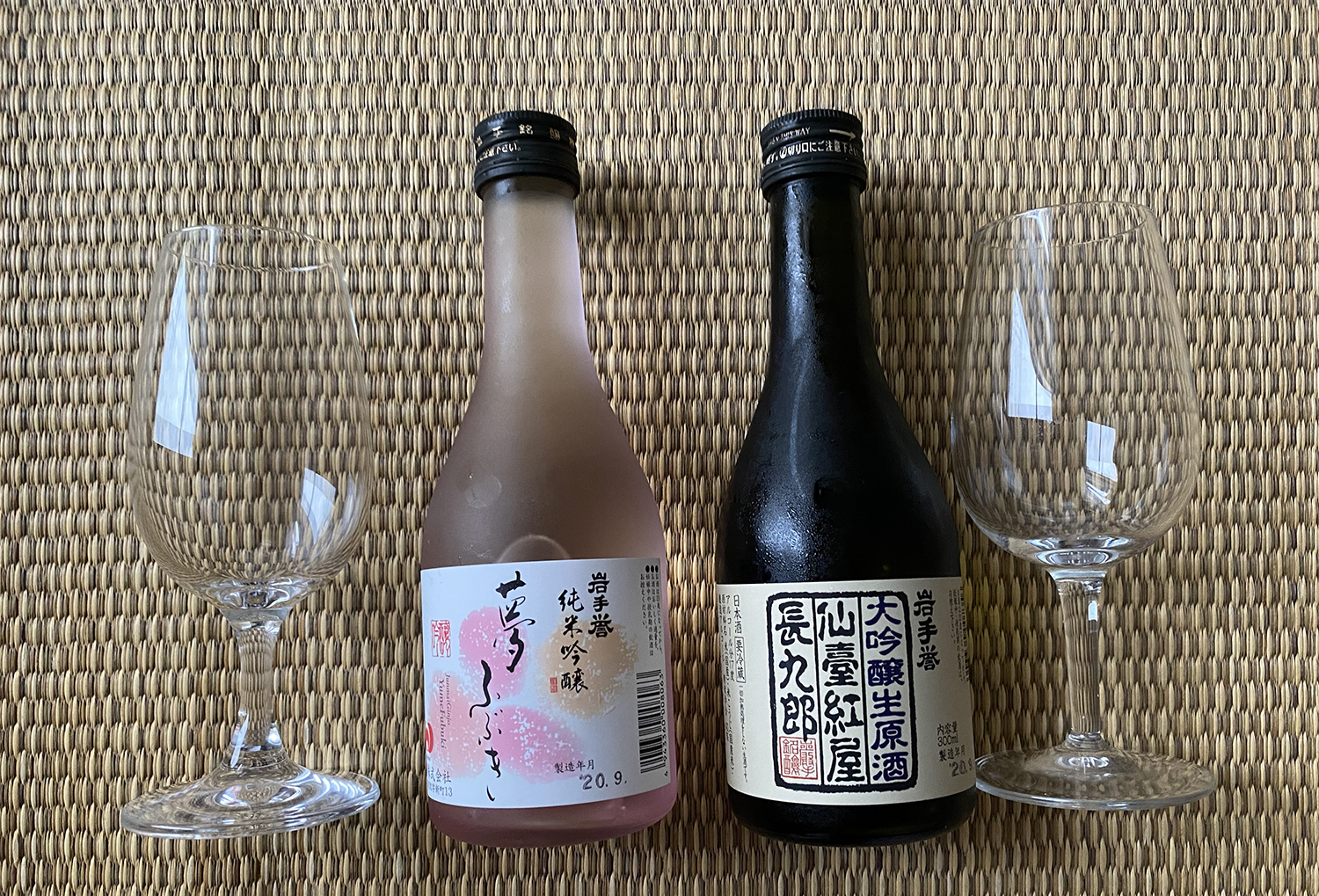
Sake review – Iwate Meijo Sake Brewery (Iwate prefecture)
The brewery originally started brewing Sake in 1858, merging the Oikawa sake store and Yoshida sake store in 1955, to launch the Iwate Meijo Brewery. The Iwate Meijo Brewery is a small-scale brewery located in Iwate prefecture not far from the Senmaya river. In general, the sake profile coming from the Iwate region is not too distinct and tends to avoid heavy and rich flavors and aromas, and is predominantly with lighter, cleaner and purer flavors. That being said, the Iwate Prefecture is known for its delicious and rich mineral water, used for growing local rice and for brewing, which add a depth in flavor to its sakes. It’s also famous for its influential and distinguished Tōji guild, The Nambu Tōji Guild, which a third of all tōji and kurabito in japan are affiliated with.
Here is my impression of the two sakes I tasted:
夢吹雪 YUME FUBUKI is a Junmai ginjō sake which matches the description given above about Iwate’s sakes profile which tend to be light, clean and pure. If you are looking for a good but restrained sake, a kind of sake which leaves you with no big surprises or dramas on your palate, this one will serve you perfectly.
Yume Fubuki is a sake with a subtle fruity and floral sensation. Its ginjō characteristics are embodied in gentle banana, green-melon, and pineapple aromas, as well as hints of white flowers and rose. Its Junmai elements will reveal moderate cereal-grain aromas and flavors. Altogether, it’s a very well-balanced sake, it doesn’t overwhelm and excite your mouth sensations. It has a short and crisp finish.
It can be paired well with white fish sashimi, or a delicate ceviche, a fluffy ricotta cheese served alongside with green-apples or chilled green-grapes, butter-based pasta sauces, good margarita pizza, fruit sorbets or a delicate cheesecake.
Recommended drinking vessel and drinking temperatures: Wine glass, or a tulip shaped ginjō glass. Recommended to be consumed lightly chilled, allow this sake to rest in the glass for a little while outside the fridge, and it will open up and become even more pleasant in depth.
FACTS:
Junmai Ginjō
Alcohol content: 15.8%
Nihonshudo (SMV – Sake Meter Value) +2.5
Polishing Ratio 50%
Rice, Water, Yeast: Iwate local ingredients
大吟醸生原酒 仙台紅屋長九郎 (Daiginjo Nama,genshu, Sendai Beniya Chokuro) Is just a fabulous daiginjo nama genshu sake! Polished down to 40% its daiginjo fruity characteristics just explode in your mouth, and yet, at the same time integrate very well with its nutty nama freshness and lively features. Its high alcohol level (17%) contributes to its long and in-depth finish. This sake reveals a wide range of flavors and aromas, while delivering a round and holistic sensation.
The intoxicating fruity aromas of banana, pineapple, green apple, with a hint of lychee and aniseed, alongside a creamy texture with hints of fresh cheese, yogurt and mozzarella, rich in umami, make it an “irresistible” kind of a sake.
The sheer pleasure in derived from drinking this sake keeps the palate intrigue and curious, wanting for more, revealing itself with great pronounced structure and an aromatic depth. Once it warms and opens up, I will dare to say it even reveals caramel and toffee notes.
Recommended drinking vessels and drinking temperatures: Wine glass or a tulip shaped special ginjō glass, however, since this sake is enriched with flavors and aromas, ceramics vessels will serve it well as well. This sake can be enjoyed in a wide range of temperatures; chilled, in room temperature, or slightly warmed. Despite the common recommendation for Namazake (raw sake) is that it should be consumed within a week (more or less) upon opening, this sake could be a good candidate for an ageing process.
Can be accompanied with smoke cheeses, blue cheeses, Camembert cheese, meet dishes, meat Carpaccio, heavy breads with honey and cream cheese, salmon row eggs with cream cheese, strong dashi dishes, dry fruits with cheese, red fish, yaki sanma (in autumn), or yaki saba, creamy pastas, pesto pasta sauce, olive oil pasta.
FACTS:
DaiGinjō Nama Genshu
Alcohol 17%
Nihonshudo +2
Polishing Ratio 40%
Acidity ratio 1.5
Rice type: Yamadanishiki




